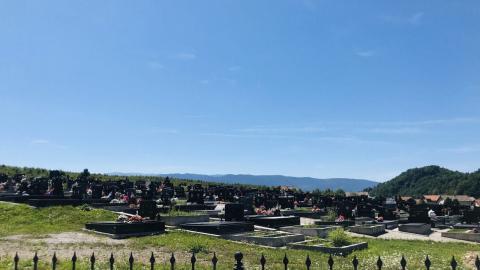In Death, at Least, Bosnia’s Dividing Lines Blur

When a 1995 peace deal ended the Bosnian war with a complicated system of ethnic division and power balancing, reports emerged of mainly ethnic Serbs exhuming their loved ones from graves on territory left under the control of Bosniaks and Croats, particularly suburbs of the capital, Sarajevo.
But if the macabre ritual was a sign of the depth of mistrust after a 1992-95 war in which 100,000 people died, most at the hands of Bosnian Serb forces, a more recent trend shows that, in death at least, the dividing lines 25 years later have blurred.
With burial places in Sarajevo in short supply, and therefore prices high, a growing number of the city's residents, who are overwhelmingly Bosniak, or Bosnian Muslims, are buying up plots in a mainly Serb cemetery in an area known as East Sarajevo.
Under the 1995 carve-up at a US air base in Dayton, Ohio, East Sarajevo became part of the mainly Serb Republika Srpska, one of two entities alongside the mainly Bosniak-Croat Federation that now make up Bosnia and Herzegovina.
The Bosnian Serb nationalist leadership regularly advocates Bosnia's dissolution and political tensions have been running high for years. But that has not deterred 50-year-old Sarajevan Jasna Omerbegovic, who in May bought two burial spaces with her husband in the Miljevici cemetery in East Sarajevo.
Entrance gate at the cemetery in East Sarajevo. Photo: BIRN
More than eighty per cent of Sarajevo's roughly 275,000 people are Bosniaks; of East Sarajevo's roughly 65,000 people, some 58,000 are Orthodox Christian Serbs.
"I don't find it unusual," Omerbegovic told BIRN. "Rather, I'd say it's a question of economics. As a couple without children, we need to deal with this issue while we still earn enough for that...
- Log in to post comments
